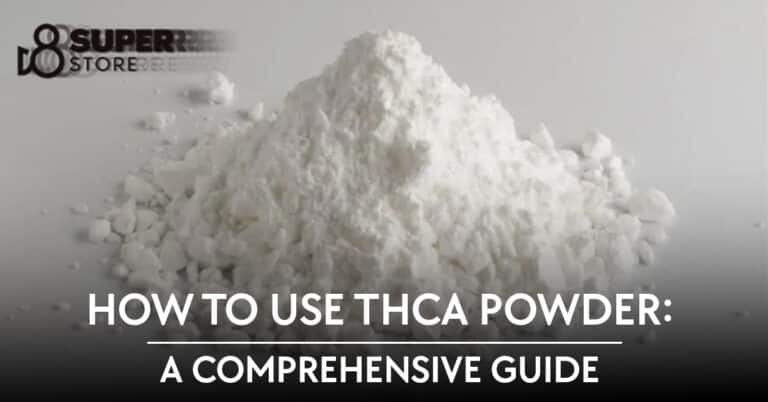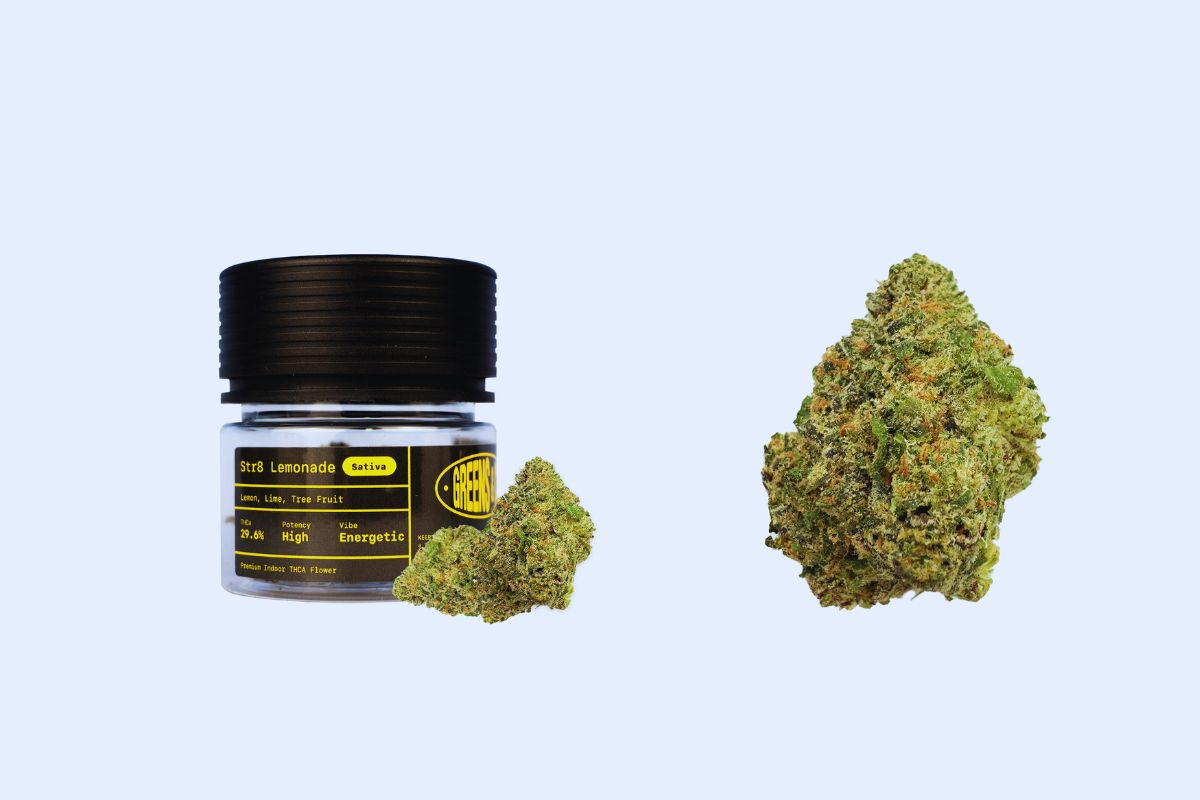Understanding THCA: A Comprehensive Guide
Introduction to THCA and Dispensaries Selling THCA
THCA products are gaining popularity in the cannabis industry, with many dispensaries selling THCA due to its unique properties and potential benefits, including various potential health benefits, making thca products increasingly popular.
The cannabis plant contains various cannabinoids, including THCA, or tetrahydrocannabinolic acid which is an acid precursor chemical and non-psychoactive precursor to THC.
Dispensaries selling THCA cater to consumer preferences for non-intoxicating cannabis products, as these products cater to a growing market.
- Introduction to THCA and Dispensaries Selling THCA
- What is THCA?
- The Difference Between THCA and THC
- How THCA Works in the Body
- Benefits of THCA
- Therapeutic Potential of THCA
- THCA in the Medical Community
- THCA and Non-Intoxicating Relief
- Market Trends and Popularity
- Consumer Preferences Shaping the Market
- The Rise of THCA Tinctures and Edibles
- THCA Flower and Raw Cannabis
- Dispensaries Offering THCA Products
- Online Availability of THCA
- How to Choose Quality THCA Products
- Comparing THCA to Other Cannabinoids
- Legal Status of THCA
- THCA vs CBD: A Closer Look
- Storing and Preserving THCA
- Potential Side Effects of THCA
- THCA for Daily Wellness
- Cooking with THCA
- Smoking vs Eating THCA
- Who Should Use THCA Products?
- Does THCA Show Up on Drug Tests?
- Is THCA Addictive?
- Integrating THCA into Your Dispensary
- Packaging and Labeling Requirements
- Future Outlook for THCA
- Conclusion
- FAQ: Frequently Asked Questions About THCA
THCA sales are on the rise, and as industry experts predict, thca sales continue to grow driven by the growing demand for cannabis products with therapeutic benefits.
The THCA boom is expected to continue, with more dispensaries expanding their thca offerings and adding THCA to their offerings.
What is THCA?
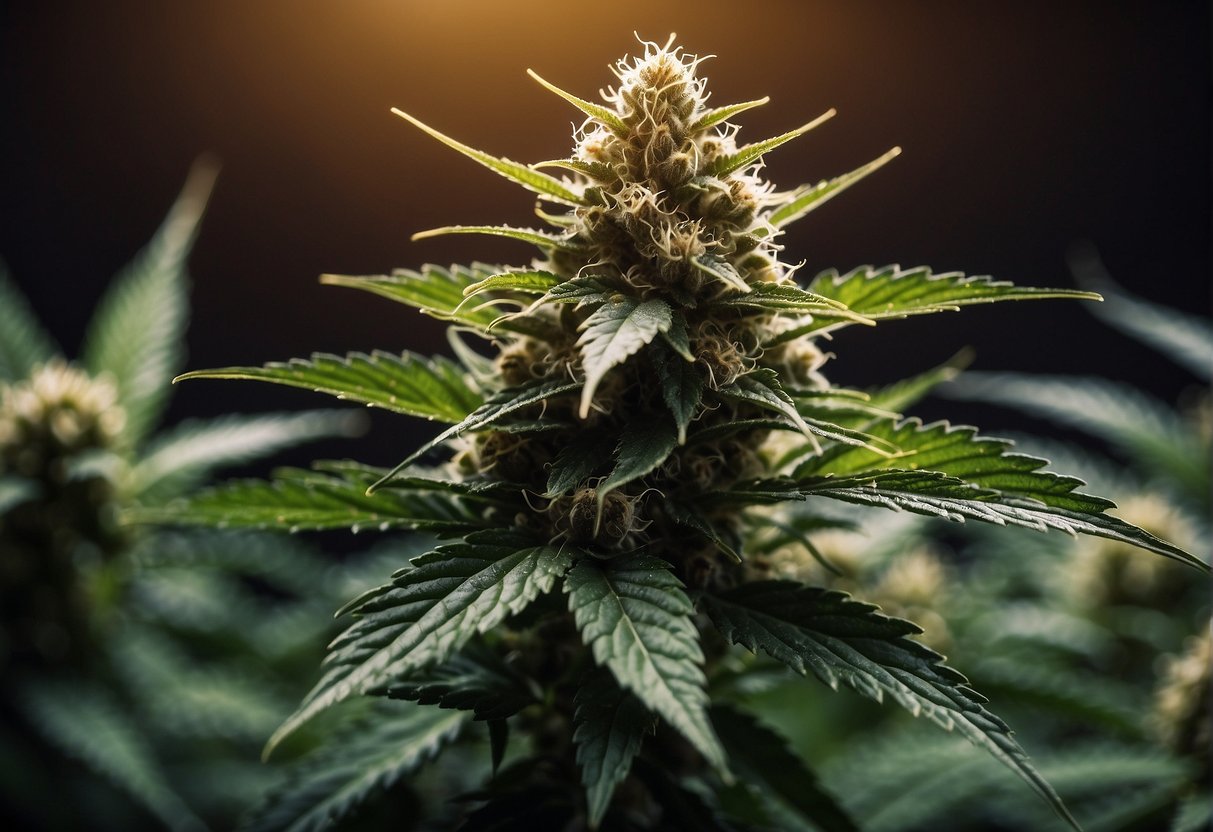
THCA stands for tetrahydrocannabinolic acid in its acidic form and is a cannabinoid found in raw cannabis plants, contributing to its health benefits.
It is the acidic precursor to THC, a different cannabinoid, and offers potential wellness benefits due to its non-psychoactive nature, highlighting the benefits of thca as a non-psychoactive compound without psychoactive effects.
THCA is typically found in freshly harvested cannabis and degrades when exposed to heat.
The Difference Between THCA and THC
THCA is non-psychoactive, while THC is psychoactive and responsible for the cannabis consumption experience that leads to a high, emphasizing the difference between thca and thc .
When THCA is heated, it undergoes decarboxylation and converts into THC. Understanding this difference helps consumers choose products based on their wellness or recreational goals.
How THCA Works in the Body
Unlike THC, THCA does not bind strongly to CB1 receptors in the brain. It may interact with other cannabinoid receptors and pathways related to inflammation, nausea, and pain relief, making it relevant for cannabis use. Research is ongoing to understand its full physiological effects.
Benefits of THCA
THCA offers localized relief, with potential benefits such as anti-inflammatory and anti-nausea properties according to preliminary studies.
Users report relief from arthritis, digestive issues, and general pain without a psychoactive high.
Its neuroprotective qualities are also being researched in the context of neurodegenerative diseases.
Therapeutic Potential of THCA
| Health Benefit | How THCA May Help | Supporting Insight |
|---|---|---|
| Anti-Inflammatory | Reduces inflammation in conditions like arthritis | Shown to inhibit COX-1 and COX-2 enzymes in studies |
| Neuroprotective | May protect brain cells from damage or degeneration | Investigated for Alzheimer’s, Parkinson’s, and neuroinflammation |
| Anti-Nausea | Helps manage nausea and appetite loss | Particularly promising for chemotherapy support |
| Anti-Proliferative | May slow growth of certain cancer cells | Lab studies suggest activity against prostate and breast cancer cells |
| Anticonvulsant | Could reduce seizure frequency and severity | Explored as a non-psychoactive alternative for epilepsy management |
| Muscle Spasms & Pain | May ease muscle cramps, spasms, and chronic pain | Offers potential without the “high” of THC |
| Immune System Modulation | Supports immune regulation and balance | Helps in managing autoimmune-related inflammation |
| Metabolic Support | May improve energy regulation and insulin sensitivity | Early research suggests metabolic benefits |
| Gut Health | Shows promise in treating IBS or colitis symptoms | Acts on endocannabinoid receptors in the digestive system |
| Mood Stabilization | May reduce stress, anxiety, or mood swings | Non-intoxicating support for mental wellness routines |
Some researchers believe THCA may have anti-proliferative properties that could help medical users with cancer treatment.
Others suggest it could be useful for epilepsy and seizure management. Although studies are limited, anecdotal reports support its therapeutic potential and the benefits of thca.
THCA in the Medical Community
Medical cannabis users often turn to THCA for medical use relief without impairment, a trend that dispensary owners should note.
Doctors in progressive states are beginning to recommend THCA-rich products to patients, which can help expand the customer base for dispensary.
It’s particularly popular among patients with chronic conditions who need symptom management throughout the day, often under the advice of a healthcare professional.
THCA and Non-Intoxicating Relief
One of THCA’s main selling points is its non-intoxicating nature. Consumers can experience wellness effects without the high that comes from THC.
This allows for daytime use and integration into daily routines without disruption, allowing users to benefit from THCA throughout the day.
Market Trends and Popularity
The cannabis market is evolving with more emphasis on non-psychoactive compounds like THCA and industrial hemp.
Sales of THCA products are rising in states with legal cannabis markets. Consumer demand for real weed is being driven by health-conscious buyers looking for natural alternatives to traditional marijuana.
Consumer Preferences Shaping the Market
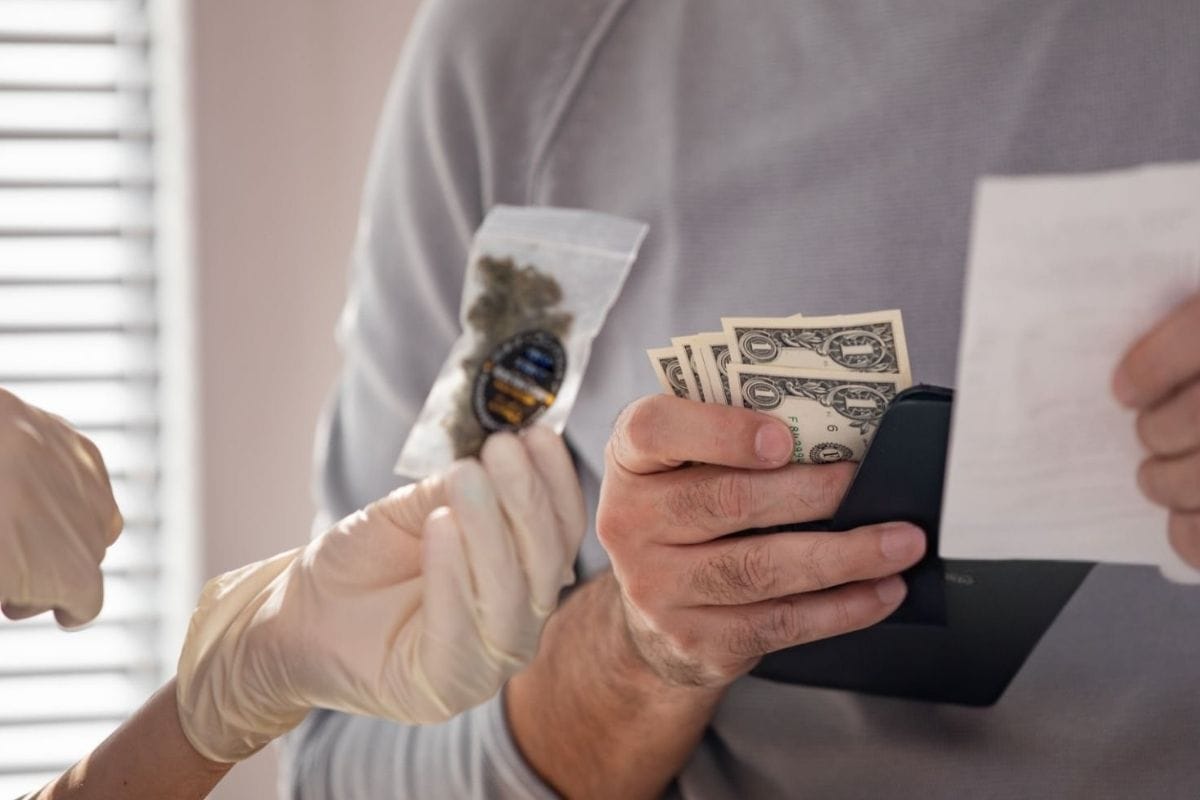
Modern consumers want variety and targeted solutions for wellness. THCA fits the bill by offering benefits with minimal risk of impairment. This shift in preference is influencing dispensary offerings and product innovation.
The Rise of THCA Tinctures and Edibles
Tinctures allow for precise dosing and discreet consumption of THCA. Edibles infused with THCA offer a smoke-free method of intake. These forms are especially appealing to seniors and health-focused users.
THCA Flower and Raw Cannabis
THCA flower refers to cannabis harvested before decarboxylation. It can be juiced, blended, or used in low-temperature preparations to retain THCA, including preparations made from hemp flower. Raw cannabis advocates believe this is the best way to maximize THCA benefits.
Dispensaries Offering THCA Products
More dispensaries are now stocking THCA-rich items that may also be sold online. These include tinctures, cannabis flower in its raw form, capsules, and topicals.
Retailers are marketing these products to wellness seekers and medical patients.
Online Availability of THCA
E-commerce platforms now offer THCA for delivery in states where it is legal. Online vendors typically provide lab results and detailed product descriptions. This has expanded access and education around THCA significantly.
How to Choose Quality THCA Products
| Criteria | What to Check | Why It’s Important |
|---|---|---|
| Certificate of Analysis (COA) | Should be from a third-party lab and list cannabinoid content, purity, and Δ⁹-THC levels | Verifies legality (≤ 0.3% Δ⁹-THC) and product safety |
| Source of Hemp | U.S.-grown, organically farmed hemp preferred | Indicates better growing standards and reduced contamination risk |
| THCA Potency | Clearly labeled percentage of THCA | Helps gauge strength and desired effects |
| Form Factor | Flower, pre-roll, concentrate, edible, vape, etc. | Choose the product that suits your preferred use |
| Smell & Appearance (for flower) | Should have a strong, fresh aroma and frosty trichomes | Indicates quality and proper curing |
| Brand Reputation | Look for reviews, transparency, and consistency | Trusted brands are more likely to deliver what they promise |
| Packaging | Airtight, UV-protected, and clearly labeled | Preserves freshness and protects cannabinoids from degradation |
| Additive-Free | No synthetic cannabinoids or cutting agents | Ensures product purity and health safety |
| Retailer Compliance | Website or shop should display legal disclaimers and age verifications | Confirms they’re operating legally and responsibly |
| Customer Support | Available and responsive customer service | Helps if you have product or shipping concerns |
Look for products with third-party lab testing (COAs), particularly thca flower that meets quality standards.
Choose items that specify THCA content clearly on the label, while being aware of strict regulations surrounding labeling.
Reputable brands will also provide sourcing and manufacturing transparency, ensuring that products derived from cannabis sativa meet necessary standards.
Comparing THCA to Other Cannabinoids
THCA is often compared to CBD derived from cannabis sativa ue to its non-intoxicating nature. However, its anti-inflammatory and neuroprotective effects may be distinct. It also offers a unique pathway to THC for users who choose to heat it.
Legal Status of THCA
Under the 2018 Farm Bill, hemp-derived THCA is federally legal if it contains less than 0.3% delta-9 THC. Some states regulate THCA more strictly, so local laws must be checked.
The legal gray area has not slowed consumer interest, and some see it as a legal loophole for accessing THCA products.
THCA vs CBD: A Closer Look

CBD is more studied and used widely for anxiety, pain, and seizures. THCA may offer benefits for inflammation and neurodegeneration, suggesting it requires more research.
Both cannabinoids can be taken in their raw form without intoxication, depending on how they are consumed.
Storing and Preserving THCA
To preserve THCA, including products made from hemp flower and raw cannabis leaves. keep them cool and away from light and oxygen. Avoid heating, as this will convert THCA into THC. Glass jars with humidity packs are ideal for flower storage.
Potential Side Effects of THCA
Most users report few or no side effects from THCA, especially when consumed in raw cannabis products.
In rare cases, digestive upset or fatigue may occur, emphasizing the importance of moderated cannabis consumption.
Heating THCA can result in THC-related side effects such as dry mouth or paranoia.
THCA for Daily Wellness
Some people incorporate THCA into smoothies or juices, including juicing raw cannabis leaves, for daily relief. It’s used for focus, inflammation control, and balancing the endocannabinoid system. Routine use may offer cumulative benefits over time.
Cooking with THCA
Use low heat or cold recipes to retain THCA’s raw properties. Avoid baking or sautéing if you want to preserve non-psychoactive effects, avoiding the process called decarboxylation. Infusing into salad dressings or smoothies is a popular method.
Smoking vs Eating THCA
Smoking or vaping converts THCA into THC and results in a high. Eating raw THCA maintains its original form and avoids intoxication. Your choice depends on desired effects.
Who Should Use THCA Products?
| User Group | Why THCA May Be Beneficial | Recommended Formats |
|---|---|---|
| Wellness Seekers | Interested in natural, plant-based wellness support without getting high | Raw flower, tinctures, capsules |
| People with Inflammation or Chronic Pain | THCA has potential anti-inflammatory properties | Edibles, pre-rolls, topicals |
| Those with Nausea or Appetite Loss | Early studies suggest THCA may reduce nausea and stimulate appetite | Gummies, vapes, low-dose edibles |
| Epilepsy or Seizure Patients (with doctor guidance) | Animal models suggest THCA may help reduce seizures | Tinctures, capsules |
| Individuals Sensitive to THC’s Psychoactivity | THCA offers non-intoxicating relief and may be easier to tolerate | Raw cannabis, THCA isolate |
| Athletes or Active Individuals | May assist with recovery and inflammation management | Topicals, capsules |
| Patients Managing Neurodegenerative Disorders | THCA is being studied for neuroprotective effects | Oils, tinctures (with medical oversight) |
| Cannabis Beginners | Ideal entry point into cannabinoids without the “high” | Raw THCA flower, low-dose products |
| Holistic or Alternative Therapy Users | Fits into natural health and alternative medicine routines | Smoothie blends, raw juice, tinctures |
THCA is ideal for people seeking wellness without intoxication, as well as potential therapeutic benefits. Athletes, professionals, and older adults often favor these products.
It’s not recommended for those who need to avoid THC metabolites considering federal law regulation .
Does THCA Show Up on Drug Tests?
In raw form, THCA from raw cannabis leaves should not trigger a drug test. However, once metabolized or heated, it becomes THC, which may show up. Caution is advised for anyone subject to regular testing.
Is THCA Addictive?
There is no evidence suggesting THCA is addictive. Because it lacks psychoactivity, it’s less likely to create dependency. As always, moderation and mindful use are encouraged.
Integrating THCA into Your Dispensary
As a dispensary owner, one can expand offerings by stocking THCA tinctures, edibles, and flower. Training staff to educate customers on THCA’s benefits builds trust and loyalty.
Marketing should focus on clear labeling, wellness, clarity, and natural relief.
Packaging and Labeling Requirements
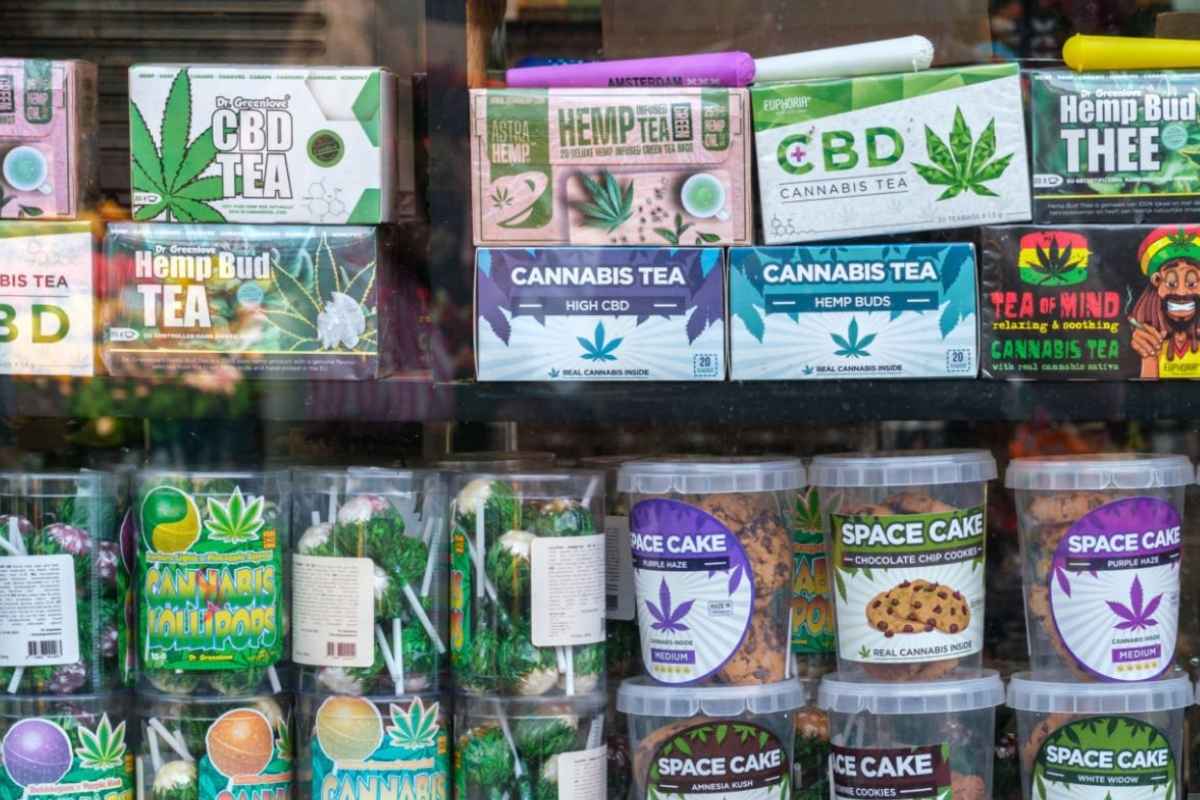
THCA products must comply with local and federal labeling laws. Labels should include cannabinoid content, usage instructions, and batch numbers. Tamper-proof and child-resistant packaging is often required.
Future Outlook for THCA
THCA is poised for continued growth in the wellness market, reflecting broader trends in the cannabis industry. Research is expected to validate many anecdotal claims.
Its legal status may become more defined as demand increases, reflecting trends in the cannabis industry.
Conclusion
In conclusion, THCA is a promising cannabinoid offering non-psychoactive benefits without any intoxicating effects. Its growing popularity reflects consumer interest in wellness and natural therapies.
As research progresses and regulations evolve, THCA will likely play a key role in cannabis innovation. By understanding its unique qualities and offering high-quality products, dispensaries can meet modern consumer needs effectively.
FAQ: Frequently Asked Questions About THCA
Is THCA legal in all states?
THCA derived from hemp is federally legal, but state laws vary. Always check local regulations before purchasing.
Can THCA get you high?
No, THCA in its raw form is non-psychoactive, which raises the question of why are dispensaries selling thca. It only becomes intoxicating if converted to THC through heat.
How should I store THCA products?
Store in a cool, dark place in airtight containers to maintain potency and prevent decarboxylation.
What’s the best way to consume THCA?
Juicing raw cannabis, using tinctures, or taking capsules are effective non-psychoactive methods.
Will THCA show up on a drug test?
If consumed raw, it likely won’t. But if converted to THC, it can cause a positive result.
Is THCA better than CBD?
Both have unique benefits. THCA may be better for inflammation and neuroprotection, while CBD is often used for anxiety and seizures.
Can I cook with THCA?
Yes, but avoid high heat to maintain its non-psychoactive form, especially when compared to traditional marijuana. Use cold recipes or low-heat infusions.
Is THCA safe for pets?
There’s limited research. Consult a veterinarian before giving THCA to animals.
Are there side effects of THCA?
Most people tolerate it well. Minor effects may include digestive upset or fatigue.
Can I buy THCA online?
Yes, in states where it’s legal. Look for lab-tested products from reputable vendors.





